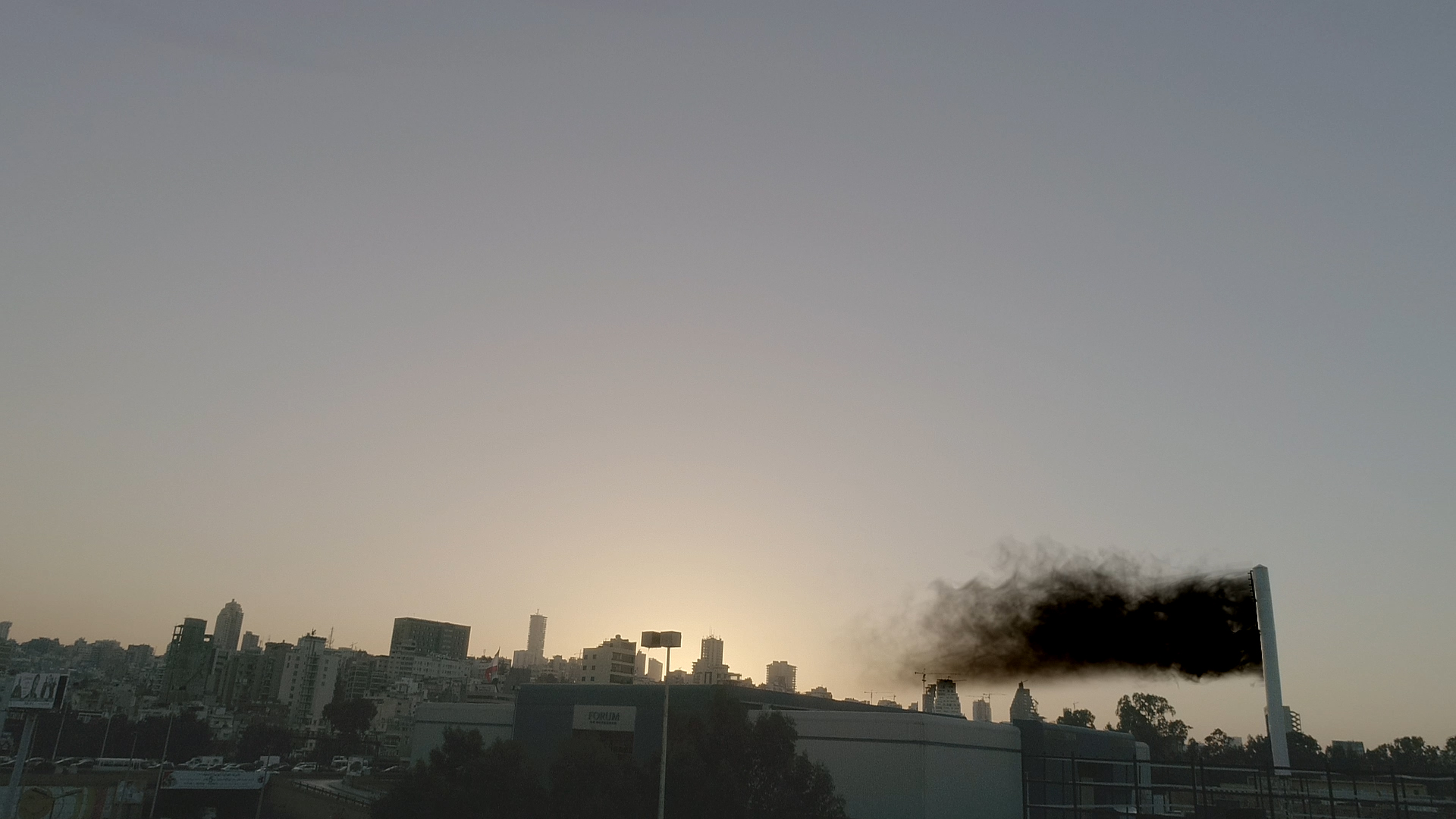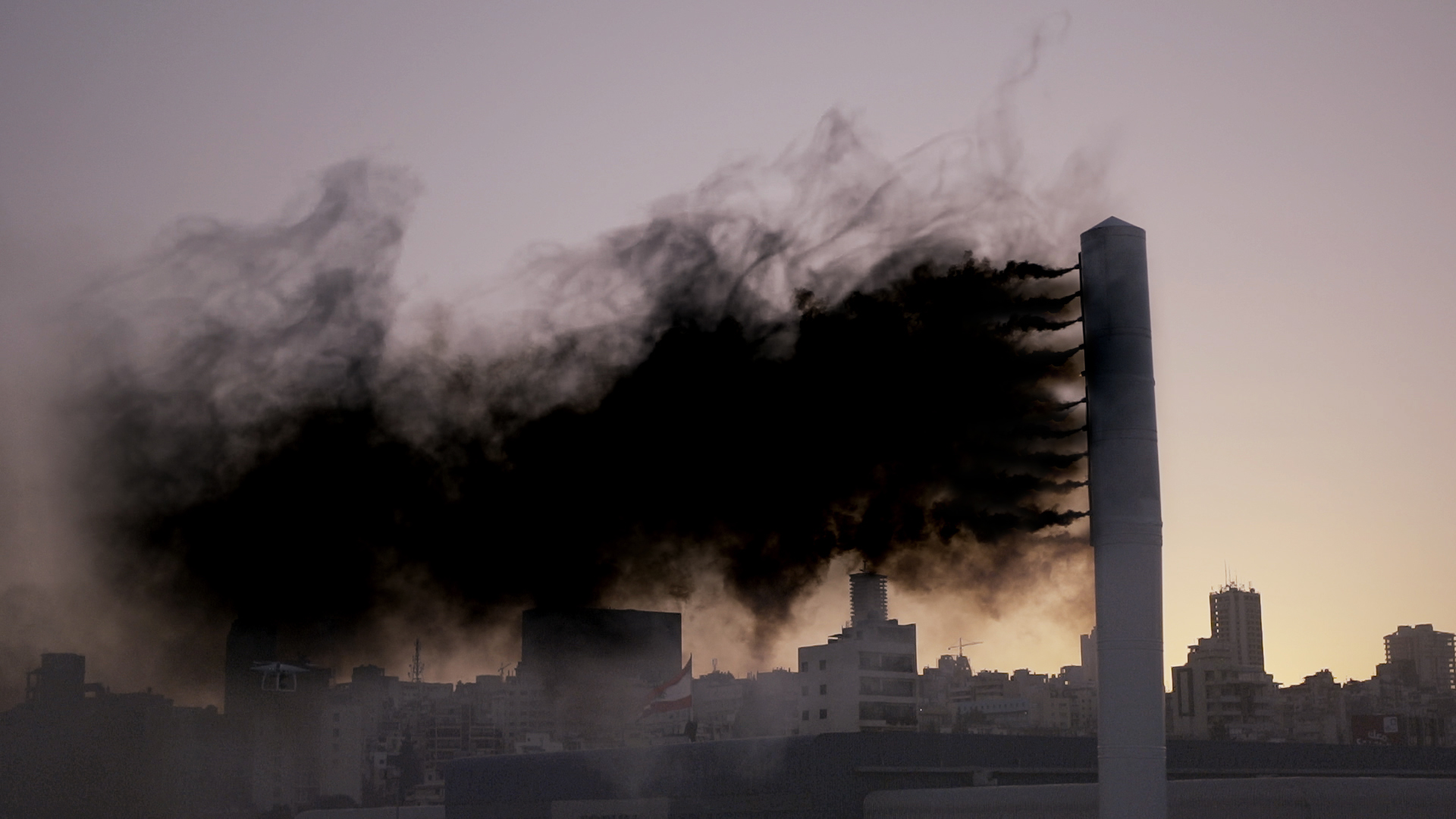The Waste Management Coalition recently installed a 12-meter flag of non-toxic black smoke to protest the construction of a planned waste incinerator in Beirut.
Bearing “7ara2to Samana” (You Burned Our Sky) as a slogan, the coalition of environmental and civil society groups also launched a public petition on January 25 to pressure the government into moving away from incinerators and seeking sustainable solutions for the ongoing trash crisis. The petition earned over 6,200 signatures in under a week.
Organisers are aiming for 100,000 signatures following the full-blast launch of their upcoming media campaign, according to Ziad Abi Chaker, CEO of environmental and industrial engineering organisation Cedar Environmental.
“Incinerators are a cash-cow, both on the construction phase and the operation phase,” said Abi Chaker.
Building a functional incinerator costs no less than $350 million and operating the facility would cost a low estimate of $125 to $140 per ton, according to Abi Chaker. These figures do not take into account design changes, technical failures, and other variables that could significantly increase the cost of building and managing a waste incinerator.
The lack of a proper waste management framework, infrastructure, and monitoring process also leaves room for the illegitimate private gain of authorities in charge of the project, considering that Lebanon has one of the highest levels of public sector corruption in the world. Out of 180 countries, Lebanon ranks 138 on the Corruption Perceptions Index from global civil society group Transparency International. A higher ranking indicates more perceived corruption.
“Establishing a fully environmental, healthy solution for waste management takes planning, takes management, and time to implement,” said Abi Chaker. “It needs a concerted effort from a lot of players, and eventually it doesn’t make you money as much as you would hope.”

Lebanon does not have a national solid waste management plan. As per Decree 8735 of 1974, solid waste management is a local municipal responsibility while the Ministry of Environment regulates the waste management sector and establishes environmental strategies and standards. Lebanon also lacks proper and direct legislative framework for solid waste management.
While incinerators seem like a valid short-term solution for quickly getting rid of the garbage that has been piling up and for generating energy, activists and health experts have consistently raised concerns about setting incineration plants as the standard for disposing of waste in Lebanon since 2015.
The Waste Management Coalition, which is comprised of organisations like Recycle Lebanon, Beirut Madinati, and the Nature Conservation Center of the American University of Beirut, has also recommended alternative solutions. Alternative possibilities include waste minimisation, sorting recyclable materials, and converting both organic waste into compost and other waste into new products.
Aside from their tremendous costs, incinerators are unsuitable for the composition of waste in the country. Over 50 percent of the garbage produced in Lebanon is organic, as per data released by the Ministry of Environment, the type of waste that is too wet to sustain enough combustion to be processed by incinerators.
Investing in incinerators, the most expensive method of waste management and energy production, without enough waste to process creates a large economic burden that sinks the country into further debt to repay contractual investment costs.
Research estimates show that only 10 to 12 percent of waste material in Lebanon cannot be composted or recycled. In a never-ending loop, incinerating recyclable material discourages recycling efforts and creates incentive to generate even more waste.
“Everything is recyclable. The problem is, do we have the industrial infrastructure to recycle everything?” said Abi Chaker. A sustainable and green system also requires a sound legal and administrative system across Lebanon, listed as one of the main obstacles by the Ministry of Environment while assessing 2015 solid waste management practices in Lebanon.
Regardless, the Waste Management Coalition believes that incinerators are not viable nor environmental. Burned wastes turn into carbon dioxide and nitrous oxide emissions that contribute to climate change. The toxic pollutants also contribute to terminal illnesses, including cancer and heart disease.
As their next step in their fight against incinerators, the coalition of environmental organisations will be laying out a straightforward alternative to the public.


